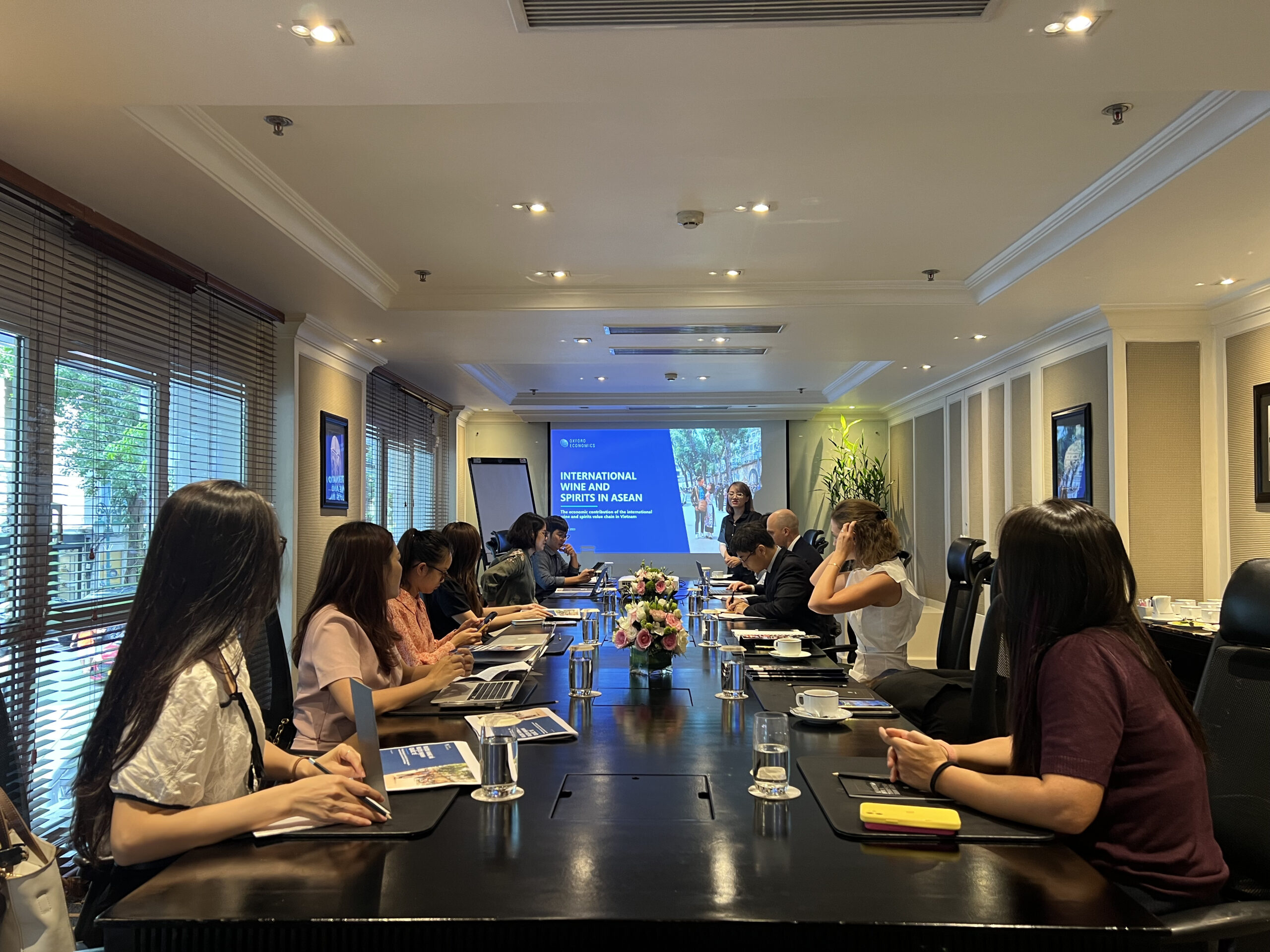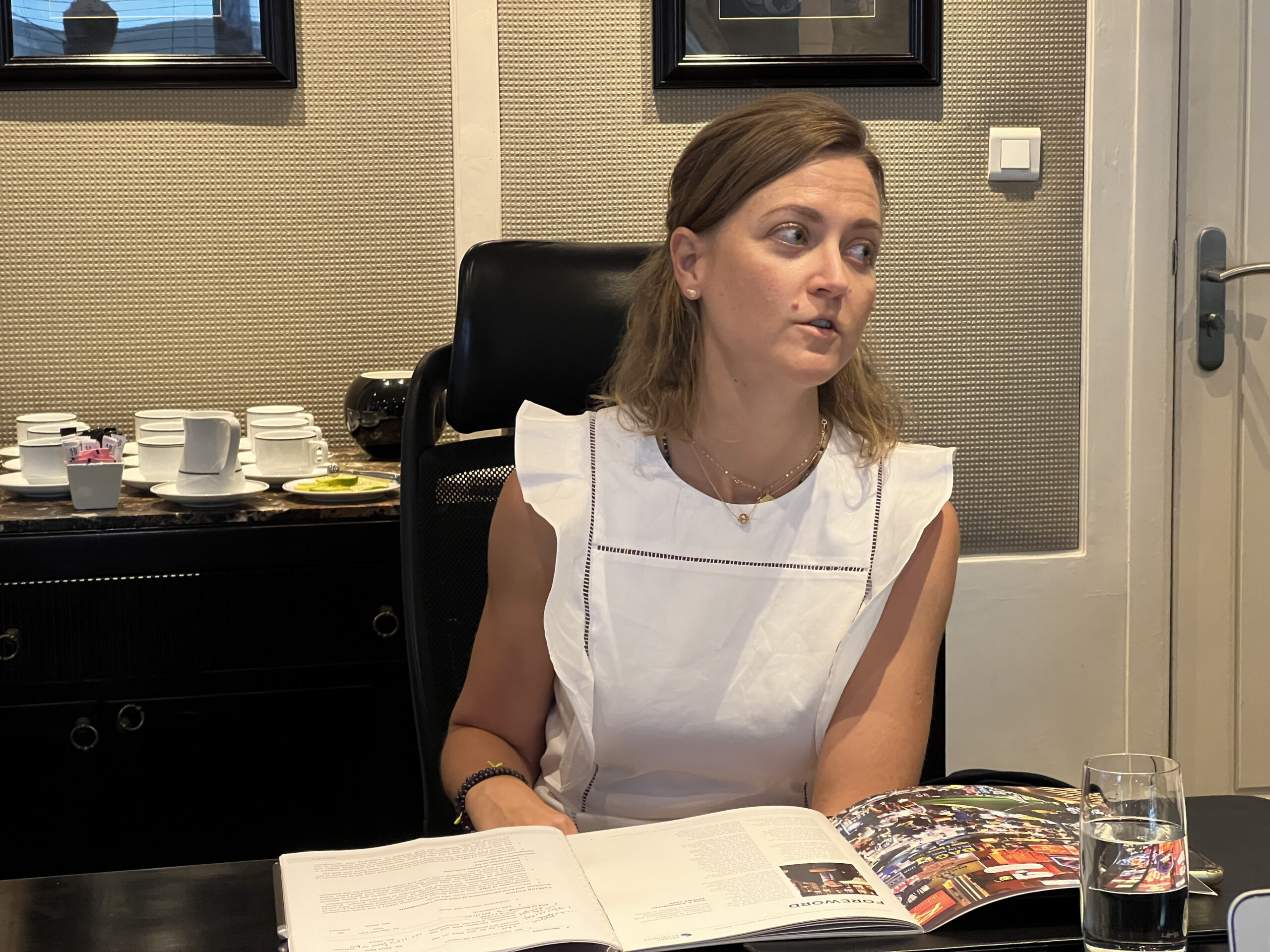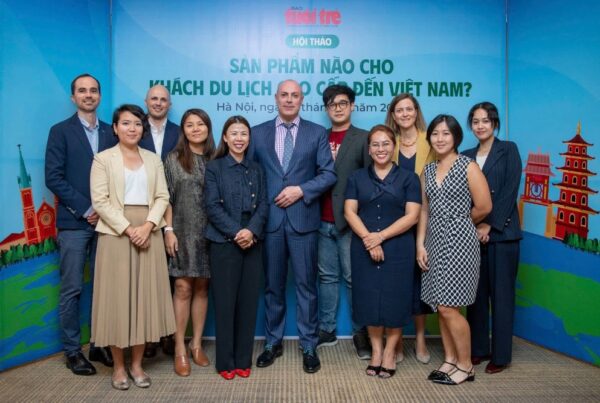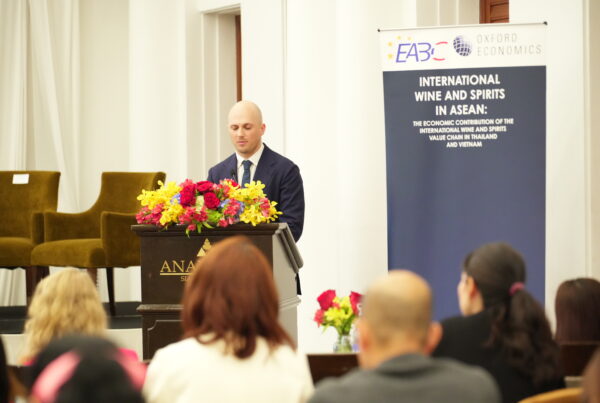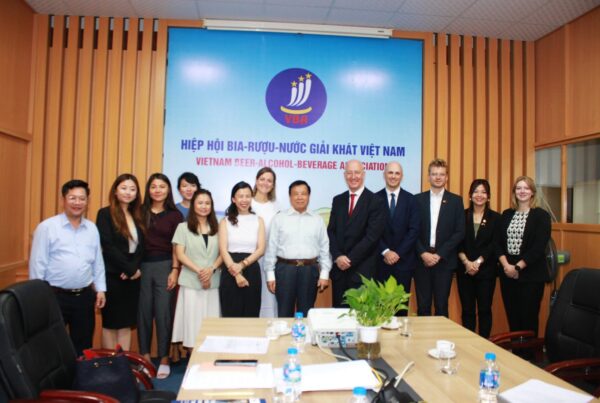Vietnam, August 2023 – Together with Oxford Economics, APISWA has published an assessment report of international wine and spirits’ contribution to the economies of Thailand and Vietnam. This report was launched alongside the recent APISWA Mission Trip to Vietnam with the Scotch Whisky Association (SWA) and the British Embassy in Hanoi. We had the pleasure of having Oxford Economics present the findings of the report to local trade association, Vietnam Beer-Alcohol-Beverage Association (VBA), industry colleagues at the SWA and British Embassy and at a local media launch event, held in the Metropole Hotel, Hanoi.
Following the publication launch, the following media articles were published by the local media in Vietnam:
- World tourism is getting “premiumization”, what does Vietnam need to do to create a highlight? – News Agency: Công luận
- The trend of “premiumization” tourism in Vietnam – News Agency: Diễn đàn Doanh nghiệp
- Catching the trend of premium beverages consumption in Vietnam – News Agency: Đầu tư
- Vietnam tourism before the trend of “premiumization” – News Agency: Đại biểu Nhân dân
- How does Vietnamese tourism find opportunities from “premium” customers? News Agency: Kinh tế Đô thị
The foreword by this year’s APISWA Chairman, Vijay S. Subramaniam, is included at the start of the Oxford Economics report. To download a full copy of the report, please access this link.
Economies in Southeast Asia, which are heavily dependent on the tourism and hospitality sectors, were hit hard by the Covid-19 pandemic. This impact was particularly severe in the tourism and hospitality sectors, which generated approximately 12% of GDP in Southeast Asian economies before the pandemic and provided around 11% of employment [1]. As travel rebounds across the region, this report studies the contribution of international wine and spirits—a key component of the tourism and hospitality offering—to the recovery in Thailand and Vietnam.
Findings show how, premiumization, the broad trend of consumers ‘trading up’ and drinking better, not more, delivers greater multiplier effects and positive downstream impacts to wholesale, retail and other operators along the value chain. For a sector that is mostly composed of micro, small and medium sized enterprises, the qualitative nature of this economic contribution is also important. Case studies in these two markets spotlight how entrepreneurs have harnessed the value generation from international wine and spirits to enhance wages and promote upskilling of their staff.
This is against a backdrop of strong responsible drinking initiatives delivered by industry in both markets. As international spirits and wines producers, we aim to foster an environment where legal spirits and wines can be enjoyed responsibly [2].
We believe that the responsible consumption of alcohol can be part of a balanced lifestyle and are committed to fighting against harmful drinking and promoting responsible marketing practices. Our flagship drink driving digital public awareness campaign, the “Power of No”, has reached 40 million young adults of legal drinking age in six ASEAN markets, including Thailand and Vietnam [3].
We hope the findings will provide an opportunity to better understand the economic gains delivered by international wine and spirits and spur greater consultation between public and private stakeholders to drive growth in support of domestic businesses, entrepreneurs and the tourism and hospitality economy of ASEAN as whole.
End Notes:
[1] https://www.oecd.org/development/economic-outlook-southeast-asia-china-india-tourism-sector-post-pandemic.htm
[2] APISWA does not recommend that anyone drink alcohol for health benefits. However, for adults who choose to drink and are of legal drinking age, moderate drinking can be part of well-balanced lifestyle.
[3] For more information on the “Power of No” campaign, please visit https://www.power-of-no.org/


